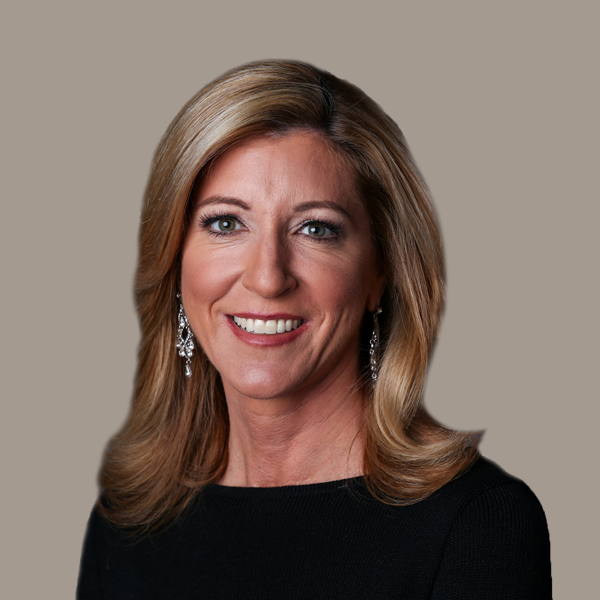what to know about the financial market amid covid and the election
the missing link
Stephanie Link, Hightower’s new Chief Investment Strategist and Portfolio Manager, spends all day, every day thinking through the implications of global events on the markets. Stephanie has spent 27 years conducting in-depth research and analyzing data and trends to ascertain how markets move and what those movements mean for wealth management. For more than two decades, she’s been a familiar face to anyone who follows financial news on CNBC. Through her frequent appearances on popular shows like “Halftime Report,” “Squawk Box,” and “Closing Bell,” Stephanie has gained a reputation among financial professionals and investors as a straight shooter with a deep understanding of the markets.
Here’s what’s on this straight shooter’s mind now, as we move ever closer to a contentious election and a period of practically guaranteed dislocation.
At the time of publication, there is one week to go until Election Day but even once the ballots are counted, Stephanie will continue to be laser-focused on the market implications of the election outcome. We’re closely following the S&P 500 Index, which, according to Strategas policy research, serves as a strong indicator of which party will win. If the S&P 500 is positive in the three-month period, the incumbent party is expected to win; if negative, victory is expected for the challenger. This measure has correctly predicted the last nine elections and 87% of presidential elections since 1928. While it’s a close call, this measure currently favors a Biden victory.
Why does that matter for personal wealth management? Because different groups stand to benefit under different administrations. “With a Trump win,” explains Stephanie, “the spectrum that will likely do well in the short-term includes small companies, traditional energy financials, technology, and defense contractors under the status quo.” Conversely, a “blue wave” could make winners out of industries including green energy infrastructure, healthcare sectors, cannabis, and more. Understanding the policy implications of various election outcomes is essential in optimizing portfolio management for personal wealth.
And finally, political events, such as the recent passing of Supreme Court Justice Ruth Bader Ginsburg, the addition of Amy Coney Barrett to the Supreme Court, and the growing cluster of COVID-19 cases in the White House, have shifted focus from a needed economic stimulus package. We’re continuing to monitor the economic data but delaying the stimulus — which seems inevitable as the Senate has adjourned until after the election — could lead to a leveling off in the economic improvements we’ve recently seen.
Extended Market Volatility
Thanks to COVID-19, the election, and policy-related uncertainty (i.e., the size and timing of a potential stimulus package), market turbulence has defined the past several weeks and months. Stephanie and her team expect this volatility to continue well into Q4 — and following the presidential election.
At Hightower, we’re continuing to monitor how this volatility affects fixed income markets and work with our clients to maximize the value of their investments. During times of heightened volatility, it’s critical to manage investments actively, to diversify investments, and to rebalance portfolios as needed.
Politics and Policies
Amid these unprecedented times, Hightower clients can cling to this truth: our team has years of experience managing portfolios amid multiple market dislocations. We will leverage that expertise as we develop portfolios for the future, which consider both micro- and macro-economic events when making intelligent investment decisions.
For Stephanie’s part, she will continue to run her own portfolio with a new Hightower fund.
“It’s a continuation of what I was doing in terms of my portfolio,” she explains. “Over the years, I have focused on Large Cap S&P 500.” The new fund will also be large-cap — what Stephanie calls Top US Core — with a blend of growth and value stocks.
“I do have a bit of a contrarian bias,” she says, “and I also have a bias toward quality companies that are number one in terms of positioning and market share in any industry.”
As she continues to examine the markets and manage this new portfolio, Stephanie will keep sharing her insights with all of the firm’s advisors. Under her leadership, our team will be even better equipped to provide the investment guidance, consultation, and specific services that are most important to you.
For more information about Stephanie Link’s portfolio or to attend one of her monthly webinars, MarketLINK, please contact your financial advisor.
COVID Continues
Seven months into the COVID-19 pandemic, life looks a little different than it did in early 2020. While we cling to hope for a return to “normal,” it’s become clear that COVID has left an indelible mark on every person, company, and industry.
“I think our lives are changed permanently…and not necessarily for the worse,” says Stephanie. “We are embracing communications in a new way. We are Zooming every day. We’re using the web every day. We’re emailing more. We’re using technology services even more. And by the way, we’re doing a pretty darn good job.”
Amid these positive changes, Stephanie sees a quickly growing total addressable market (TAM) for the types of tech-driven solutions that have proved critical in navigating the pandemic thus far. In her own investments, she’s focused on companies that can demonstrate material revenue growth opportunities over the coming decade.
“We’re using technology to balance home and work, and that’s going to continue for a while,” she says. “I think technology does continue to be attractive because of that. The TAM has likely increased because we’re using these solutions more.”
Stephanie’s valuation discipline has precluded her from wildly chasing technology stocks that have displayed rapid COVID-prompted growth, but she has seized opportunities to upgrade the quality of her portfolio. In industries where she has owned third- and fourth-position companies, for example, she has been able to move up to first and second positions much more affordably — and you can, too.
“Why not upgrade and really have a fabulous quality portfolio for the long-term?” she asks.
What's Next
When talking about long-term wealth management, “personal finance” is a bit of a misnomer.
The financial decisions each of us makes — and the decisions Hightower advisors help their clients make — are anything but personal. Rather, they’re the result of a complex interplay of both micro- and macro-economic conditions. Markets are easily influenced, and today’s roster of competing events — from the COVID-19 crisis to relations with China to the Presidential election — affects the performance of our portfolios.
STEPHANIE LINK
Chief Investment Strategist and Portfolio Manager, Hightower






